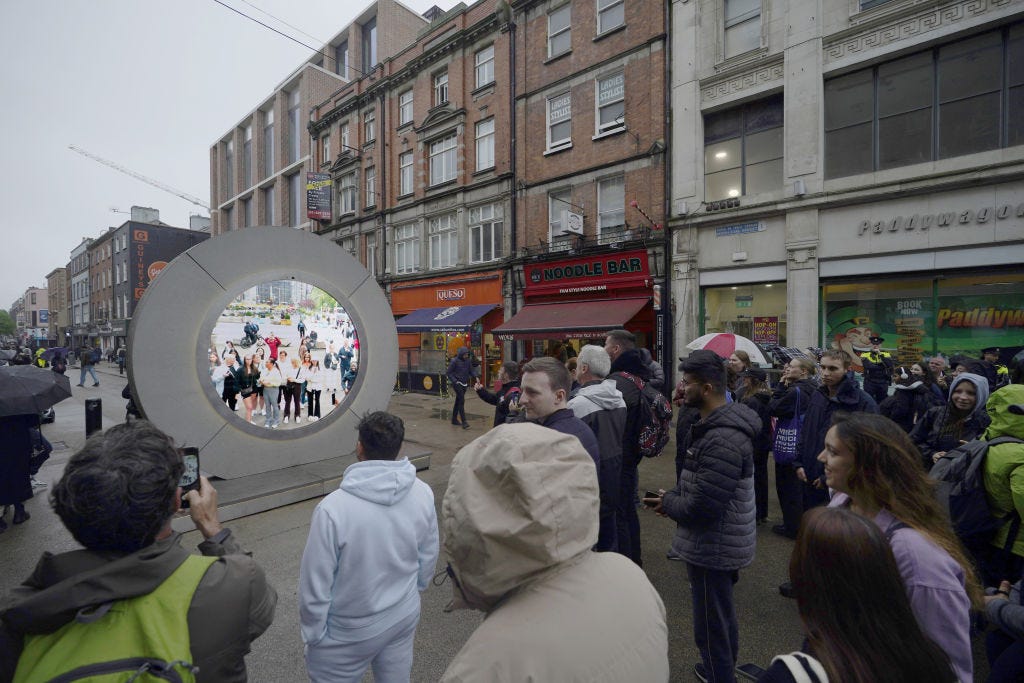INTERVIEW: Naomi Klein on how the left creates the vacuum that the right fills
The author and activist talks about how right-wing activists became a mirror image of the left, the politics of emotion, and why it’s still worth writing — and acting — in a time of despair
Naomi Klein’s most recent book, Doppelganger, begins with a case of mistaken identity: she overhears people confusing her with Naomi Wolf, the former feminist turned conspiracy theorist. At first, she shakes it off as an annoying but unimportant mistake, but as she encounters it in more and more online and IRL spaces and begins to unravel the threads of misogyny and antisemitism that feed the confusion, she uncovers a deeper problem: she’s not facing just a specific confusion of Naomis, but a global problem: if you maintain a personal brand, an online avatar, a public self distinct from your private identity, you’ve got doubles out there, and their proliferation means we’re all increasingly alienated from ourselves and one another.
As she traces her own doppelganger’s transit from the left to the far right, she builds on the notion of doubling to explore how conservative activists have taken advantage of progressive failures and adopted the analyses, language, and tactics of the left. Over the course of the book, she traces the construction of a “mirror world” of parallel political critiques and strategies — a truly powerful doppelganger, often an evil twin, that challenges all of our political identities.
Doppelganger is a far-reaching book, and it sparked this equally wide-ranging conversation below. In this first of two parts, we talked about the political implications of the book’s diagnosis of modern life, how political shortsightedness and messaging failures on the left gave right-wing activists an opening to take political territory, why the left hasn’t been able to counter right-wing gains effectively — and what progressive forces need to learn from the mistakes of the past.
Trust us — you won’t want to miss this interview.
A request for those who haven’t yet joined us: The interviews and essays that we share here take research and editing and much more. We work hard, and we are eager to bring on more writers, more voices. But we need your help to keep this going. Join us today to support the kind of independent media you want to exist.
And today we’re offering you a special discount of 20 percent if you become a paying subscriber. You will lock in this lower price forever if you join us now!
In Doppelganger, you explore this notion that there are real unaddressed issues, many of them, that progressive and liberal forces fail to adequately speak to or connect with, real things people are feeling. And that leaves open territory that’s very ripe for the right to come in — though the right doesn't actually help on these things. Can you talk about that dynamic, unpack it a little bit, and maybe pick a few of the areas specifically — whether it’s evolving masculinity or billionaires or racial change — where that territory is left open, how it's left open, and then how it's claimed?
This is a dynamic I've been interested in for a long time. And I think there is always this kind of dialectic between the rise of a fascist right and the failures of a center-left, a far left, a failure to make alliances but also this opening up of vacuums.
Politics hates a vacuum. Somebody is going to fill it. If there are powerful emotions out there that are being unaddressed, if you're a smart strategist, you will study your opponents and you will speak to those feelings even if you don't actually have serious policy responses to them.
So we saw this move very clearly in 2016 around free trade, which is an issue that I kind of came up in. My first book, No Logo, was in the alter-globalization movement and was part of this mass mobilization around the failures of corporate free trade. There were mobilizations outside World Trade Organization summits, outside World Bank and IMF summits, outside of Davos. And it was very much an anti-corporate and increasingly an anti-capitalist movement. It brought together farmers from India, trade unionists from Ohio, and environmentalists from Seattle. I mean, that was the sort of Teamsters and Turtles alliance in Seattle, right? Saying, "Okay, everyone's getting screwed by this deal." It's a bad deal.





